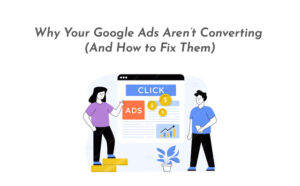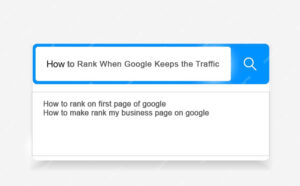Introduction
The Competitive Landscape of Pay-Per-Click Advertising
Pay-Per-Click (PPC) advertising has evolved into a fiercely competitive arena where businesses vie for the attention of potential customers. With the rise of digital marketing, PPC has become a cornerstone strategy for driving traffic and generating leads. However, the increasing competition means that basic strategies are no longer sufficient. To stand out and succeed, businesses must adopt advanced PPC techniques that can provide a significant edge over competitors.
Why Advanced PPC Techniques Are Essential
In a crowded digital marketplace, leveraging advanced PPC techniques is essential for achieving superior results. These techniques allow advertisers to optimize their campaigns more effectively, target audiences with greater precision, and ultimately, maximize return on investment (ROI). Mastering these strategies is the key to outperforming competitors and securing a dominant position in your industry.
Comprehensive Keyword Research
Uncovering High-Intent Keywords
Keyword research is the foundation of any successful PPC campaign. To outperform competitors, it’s crucial to identify high-intent keywords that align with the specific needs and desires of your target audience. These are the keywords that indicate a strong likelihood of conversion, as they often represent users who are ready to make a purchase or take a desired action. By focusing on high-intent keywords, you can attract more qualified leads and increase the effectiveness of your ads.
Leveraging Negative Keywords for Precision Targeting
Negative keywords are an often underutilized tool that can significantly enhance the precision of your PPC campaigns. By identifying and excluding keywords that are irrelevant to your offerings, you can prevent your ads from being shown to users who are unlikely to convert. This not only reduces wasted ad spend but also improves the overall relevance and performance of your campaigns. Implementing a robust negative keyword strategy is essential for maintaining a high level of targeting accuracy.
Ad Copy Optimization
Crafting Compelling, Click-Worthy Headlines
The headline of your PPC ad is the first thing users see, making it a critical component of ad copy optimization. Crafting headlines that are both compelling and click-worthy requires a deep understanding of your audience’s pain points and desires. Effective headlines should be clear, concise, and include strong calls to action that encourage users to click. Utilizing power words and creating a sense of urgency can further enhance the click-through rate (CTR) of your ads.
Utilizing Emotional Triggers in Ad Copy
Emotional triggers are powerful tools that can significantly influence user behavior. Incorporating emotional appeals into your ad copy can create a stronger connection with your audience and drive higher engagement. Whether it’s tapping into feelings of fear, excitement, or curiosity, using the right emotional triggers can make your ads more persuasive and effective. This advanced technique helps differentiate your ads from the competition and encourages users to take action.
Audience Segmentation and Targeting
Creating Highly Targeted Ad Groups
Effective audience segmentation allows you to create highly targeted ad groups that cater to specific segments of your audience. By dividing your audience based on factors such as demographics, behavior, and interests, you can tailor your ads to resonate more deeply with each group. This level of precision targeting leads to higher relevance, better engagement, and ultimately, improved conversion rates. Advanced segmentation techniques are key to maximizing the impact of your PPC campaigns.
Using Demographic and Behavioral Data to Refine Audiences
Demographic and behavioral data provide valuable insights into the characteristics and preferences of your audience. Leveraging this data allows you to refine your targeting even further, ensuring that your ads reach the most relevant users. For example, targeting users based on their previous interactions with your website or their purchasing history can lead to more personalized and effective ads. This data-driven approach enhances the precision and effectiveness of your PPC campaigns.
Advanced Bid Management
Implementing Bid Adjustments Based on Performance
Advanced bid management involves making strategic adjustments to your bids based on the performance of your ads. By increasing bids for high-performing keywords and reducing bids for underperforming ones, you can allocate your budget more efficiently and maximize ROI. Bid adjustments can also be made based on factors such as device type, location, and time of day, allowing for even greater control over your campaigns. This technique helps ensure that your ads are always performing at their best.
Leveraging Automated Bidding Strategies
Automated bidding strategies, powered by machine learning algorithms, can take your PPC campaigns to the next level. These strategies automatically adjust your bids in real-time based on a variety of factors, including user behavior and conversion likelihood. By leveraging automated bidding, you can optimize your campaigns more effectively and achieve better results with less manual effort. This advanced technique allows you to stay competitive in a fast-paced digital advertising environment.
A/B Testing and Continuous Optimization
Running Split Tests on Ad Variations
A/B testing, or split testing, is an essential practice for optimizing PPC campaigns. By running tests on different ad variations, such as headlines, images, and calls to action, you can identify which elements resonate most with your audience. Continuous A/B testing allows you to refine your ads over time, leading to improved performance and higher conversion rates. This iterative approach to optimization is crucial for staying ahead of competitors.
Optimizing Landing Pages for Maximum Conversion
The effectiveness of your PPC ads is closely tied to the performance of your landing pages. Optimizing landing pages involves ensuring that they are relevant, user-friendly, and designed to convert. Key factors to consider include page load speed, mobile responsiveness, and the clarity of the call to action. By aligning your landing pages with the intent of your ads, you can maximize conversion rates and improve the overall ROI of your PPC campaigns.
Utilizing Ad Extensions
Enhancing Ads with Sitelink and Callout Extensions
Ad extensions are additional pieces of information that can be added to your PPC ads to enhance their visibility and appeal. Sitelink extensions allow you to link to specific pages on your website, providing users with more options and increasing the likelihood of engagement. Callout extensions, on the other hand, highlight key selling points or offers, making your ads more informative and compelling. Utilizing ad extensions effectively can improve the performance and CTR of your ads.
Leveraging Location and Call Extensions for Local Impact
For businesses with a physical presence, location and call extensions are invaluable tools. Location extensions display your business address, making it easier for users to find you, while call extensions allow users to call your business directly from the ad. These extensions are particularly effective for local campaigns, as they provide users with immediate ways to engage with your business. Leveraging these extensions can significantly enhance the impact of your PPC ads on local audiences.
Remarketing Strategies
Crafting Custom Remarketing Lists
Remarketing involves targeting users who have previously interacted with your website or ads. By crafting custom remarketing lists, you can segment these users based on their behavior and create highly targeted ads that encourage them to return and convert. For example, you can target users who abandoned their shopping carts or those who visited specific product pages. Remarketing is a powerful technique for re-engaging users and driving conversions.
Dynamic Remarketing for Personalized Ad Experiences
Dynamic remarketing takes personalization to the next level by displaying ads that feature products or services the user has previously viewed on your website. This technique creates a highly relevant and personalized ad experience that is more likely to result in conversion. Dynamic remarketing is particularly effective for e-commerce businesses, as it allows you to re-engage users with the exact products they are interested in.
Analyzing Competitor Strategies
Using Competitor Insights for Strategic Advantage
Analyzing your competitors’ PPC strategies can provide valuable insights into what is working in your industry. By understanding which keywords, ad copy, and platforms your competitors are using, you can identify opportunities to differentiate your campaigns and gain a strategic advantage. Competitor analysis allows you to stay ahead of the curve and make informed decisions about your own PPC strategy.
Monitoring Competitor Ad Copy and Keywords
Competitor monitoring involves keeping a close eye on the ad copy and keywords that your competitors are using. This information can help you identify gaps in the market or areas where you can outperform your competitors. By staying informed about your competitors’ activities, you can make adjustments to your own campaigns that enhance your competitive positioning.
Tracking and Analytics
Setting Up Conversion Tracking for Accurate Measurement
Accurate measurement is essential for evaluating the success of your PPC campaigns. Setting up conversion tracking allows you to monitor the actions that users take after clicking on your ads, such as making a purchase or filling out a form. This data is crucial for understanding the effectiveness of your campaigns and making data-driven decisions. Without proper tracking, it’s impossible to gauge the true impact of your PPC efforts.
Analyzing PPC Performance Data to Inform Strategy
Regularly analyzing your PPC performance data is key to continuous improvement. By examining metrics such as CTR, conversion rate, and cost per acquisition (CPA), you can identify trends and areas for optimization. This data-driven approach allows you to refine your strategy over time and achieve better results. Continuous analysis and optimization are essential for staying competitive in the ever-evolving landscape of PPC advertising.










